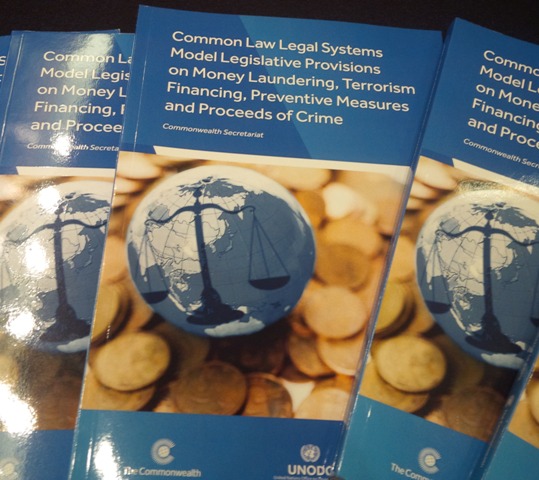 The Commonwealth has pulled together best practice tool kits for fighting corruption and achieving transparency [picture credit: Debbie Ransome]
The Commonwealth has pulled together best practice tool kits for fighting corruption and achieving transparency [picture credit: Debbie Ransome]
Dealing with her own fight back against media attacks on her personal integrity, Commonwealth Secretary-General Patricia Scotland unveiled a Commonwealth template for countering corruption and encouraging global transparency at a London conference in December.
The occasion was the Transparency International-UK Anti-Corruption Lecture 2016 held at the London headquarters of global law firm Clifford Chance.
The backdrop had included a Commonwealth commitment made in tandem with Transparency International (TI) in May to tackle global corruption but also with a backdrop of a series of newspaper attacks on Patricia Scotland during the summer and autumn of 2016.
Baroness Scotland started her December lecture with mention of the personal attacks in the British media.
She told her audience that she had lodged a complaint over online coverage about her with Britain’s Independent Press Standards Organisation, IPSO. She said that IPSO would be investigating the complaint and had advised all parties to “preserve confidentiality” of the complaint with nothing more published or passed on until the process was complete.
With the press attack elephant in the room dealt with, Baroness Scotland turned to the main business at hand – the issue of tackling corruption using the tools at hand to the Commonwealth.
Corruption “scourge”
“I am also determined that the Commonwealth will be in the forefront of innovative thinking and practical action to eliminate the scourge of corruption from institutions of governance and public life at every level, from sport, from trade, and from commerce,” she told her audience.
She outlined the toll corruption had been taking on emerging nations and why the Commonwealth was best placed to use its “common law of leverage” to tackle this.
“The Commonwealth can bring something very special to fighting international corruption,” she told her audience.
The former UK Attorney-General outlined initiatives she had previously been a part of, including the passage of the UK Bribery Act, and pointed to “best practice tool kits” across the Commonwealth which could provide a conjoined Commonwealth approach.
New template
Outlining what she saw as the wider fight against corruption, Baroness Scotland said that it included advice on the management of natural resources to achieve transparency, the toolkit to overcome corruption, technical expertise and support and tax transparency.
She added that small countries had been “lumped together” under the tax haven label when some countries were actually at the forefront of changing tax transparency standards globally.
She said that “everyone needs legislation, everyone needs tool kits”, adding that there was no need for the Commonwealth to reinvent the wheel for tools to achieve transparency.
On that note, Baroness Scotland unveiled the new book Model Legislative Provisions on Money Laundering, Terrorism Financing, Preventative Measures and Proceeds of Crime written by the Commonwealth Secretariat, the International Monetary Fund (IMF) and the United Nations Office on Drugs and Crime (UNODC).
She described the book as an “excellent resource” and the first time that various strands of law had been brought together, making it easier for countries to adapt or adopt measures into their legal frameworks.
Highlights from Patricia Scotland’s speech.
Following her lecture, the audience of lawyers, academics, accountants, public servants and human rights activists were invited to ask questions from the floor before Baroness Scotland left for her next engagement.
It was clear from the range of questions that Commonwealth member states and the Commonwealth Secretariat itself would have its work cut out on the transparency front in 2017.
The questions tackled the Commonwealth’s role in hosting of exiled former leaders at Marlborough House meetings to dealing with alleged corruption in the face of the ongoing FIFA bribery allegations against Trinidad and Tobago’s Jack Warner who is still fighting extradition to face charges in the US.
And, yes, one attempted question from a Daily Mail reporter in the audience as she identified her newspaper and attempted to raise allegations made by a “whistle blower” found herself cut off midway by Patricia Scotland.
Taking other questions, Patricia Scotland apologised because she had to leave for an appointment at Buckingham Palace.
The newspaper attacks, the possible reasons behind them and where the young lady from the Daily Mail had gone to after the lecture were naturally the main topics of discussion over drinks at the post-lecture reception.
Related stories
The Commonwealth – Secretary-General commits to ‘eliminate the scourge of corruption’
The Times – Baroness Scotland stays silent after lecture on transparency



